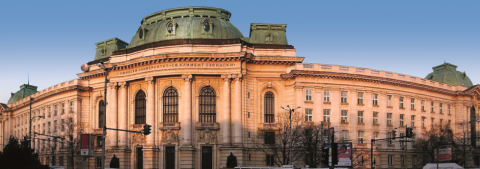Staff interpreters of the EU institutions discuss the Bulgarian language at Sofia University

On Friday, 17 March Sofia University 'St. Kliment Ohridski' organised a seminar devoted to the Bulgarian language and the challenges for translators and interpreters working from and into Bulgarian. The meeting was hybrid, making it possible for a wide range of participants to take part both onsite and online.
Staff interpreters from DG SCIC and DG LINC were invited to speak about interpretation at the EU institutions. They connected online and covered topics ranging from the influence of the legislative process in the EU institutions on the Bulgarian language, to the ever-increasing use of borrowings (mainly from English) by Bulgarian native speakers. Topics also included the difference of language depending on meetings, as well as the importance of knowing and using the wealth of lexical means and patterns of the Bulgarian language. The seminar was a good opportunity to raise awareness by presenting some of the challenges in the everyday work of interpreters and to emphasise the need for improved communication.
Professors from the Faculty of Classical and Modern Philology and the Faculty of Slavic Studies at Sofia University dwelt upon some modern trends and phenomena in Bulgarian, such as the use of idiomatic expressions and political correctness, language used in the media and verbal aggression, linguistic negligence and linguistic laziness. All these issues triggered a lively discussion between onsite and online participants. Bulgarian conference interpreting trainers, staff translators from the European Commission and from the Council, university professors and students asked pertinent questions, made valuable comments, and provided relevant examples of the topics at hand.
Even though the seminar had an open end, the tacit conclusion from the discussion was clear to everyone: it is worth it to use authentic and correct Bulgarian, to act a positive example and encourage our delegates to strive for the same, and to stay interested in current and future developments in the Bulgarian language.
A story to be continued… For more information (in Bulgarian) you can have a look here.
